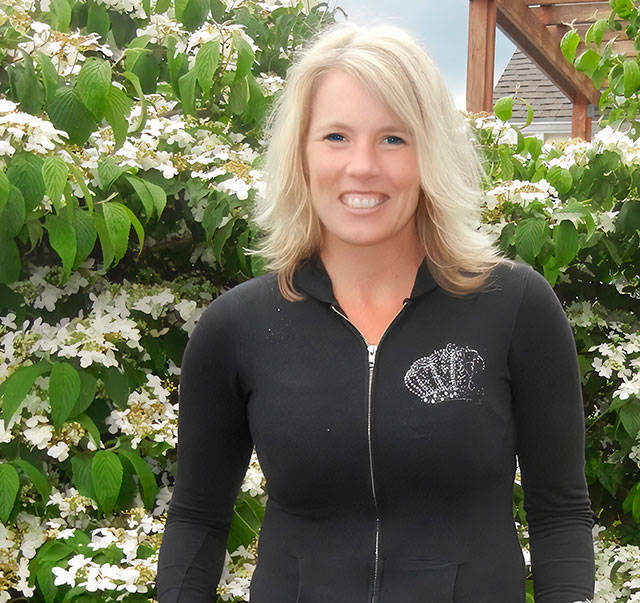A recent request to support Older Americans and Mental Health Awareness Month triggered powerful memories. Alzheimer’s was among my earliest enemies. When I was 6, my lovely, vivacious grandmother, “Nonnie”, began her fight with the disease. I watched the ever-laughing, former college professor, AAUW and Seattle Garden Club president battle the inevitable loss of all she once held dear.
One by one Nonnie’s memories and abilities fled. First she stopped singing. Then she struggled to count change for a grandchild’s small gift. The degeneration progressed. One day she jumped out of the car yelling she had been kidnapped—much to the chagrin of my poor, physically-detained grandfather. He was held by a large group of would-be Samaritans until the police arrived and released him.
The Easter Nonnie hid the eggs for grandchildren went down in memory. Most were never found.
She was physically strong. Her body refused to give up even when her mind failed. She lived long after her ability to speak, recognize anyone, or take care of her basic needs had gone.
Alzheimer’s Disease was a nemesis. My first job at the University of Washington was devoted to the identification and cure of the disease. Thirty years later, they are still working on it.
When we heard that my husband’s grandmother had been diagnosed, I knew what lay ahead. This was familiar territory. I braced myself, knowing how close he felt to her. For years we had enjoyed hearing his fond memories of summer trips to the family cabin. Grandma always had a huge spread of food laid out for the perpetually hungry group of grandchildren. Often, even in adulthood, my husband requested recipes for dishes she made.
With trepidation we watched the signs from afar that things were deteriorating. Wrong names on Christmas cards….then they stopped altogether. Grandma had fallen. She had in-home care. She was in a facility.
We were slated to travel across the country with our children for a wedding. My husband wanted to stop with our four young daughters so they could meet his Grandma. Looking at their innocent faces, I was worried. Our oldest girl was only 8. What would we find? Disturbing memories of my own visits to the nursing home flooded back: Nonnie’s roommate, yelling every 10 seconds, “I need a glass of water,” while clutching a full glass to her breast. The sad, confused gazes. The hopelessness.
“Are you sure?” I asked
His affirmative response convinced me. This was important to him. We pulled up in front of the facility where Grandma had been staying. I slowly followed my husband up the stairs. I knew what resided here.
We walked into Grandma’s room. Dan placed his arm around her. “Hi Grandma.”
“Nice to see you, Tim.”
My heart ached as I saw the girls try to hide their shock. She didn’t even recognize Daddy?
The room filled with silence, then Grandma turned and caught sight of the girls. Bending her small, spry body down, she patted each on the cheek. “Oh sweeties. Do you know what you need? A cookie.”
Off she went, walking quickly down the hall. She returned a few minutes later, empty-handed. The girls exchanged glances.
“Grandma,” Dan patted her hand, “It’s Dan, from Seattle.”
“How are you, Tom?” Once again her gaze found the children. “Oh, girls, it’s so nice to see you. You know what you need? Cookies.”
Off she headed again. Five minutes later she was back. No cookies.
Four or five times this ritual played out, to the increasing amusement of the little girls. Grandma wasn’t scary anymore. How could someone bent on getting you cookies be scary? Dan laughed. Grandma might not remember his name, but she was still bent on feeding him.
By the time we left, Grandma was pretty tired from her fruitless cookie foraging. As I walked back to the car I thought of my last visit with my own grandmother. It had been years since Nonnie had spoken a word. Recognition of anything or anyone had long since passed. I was home from college and went to her room. She lay in bed with her back to me. I walked around, knelt down and faced her. I began talking. I told her what was happening in my life. I told her why I hadn’t been to see her. As I spoke, I felt her hand squeeze back.
I was stunned. It was the first response I had seen from her in years. She opened her mouth, and with a voice horse from non-use, began singing. “Let me call you sweetheart, I’m in love with you. Let me hear you whisper that you love me too. Keep the love light burning in your eyes so blue. Let me call you sweetheart, I’m in love with you.”
Through the verse and the chorus her gaze held steady. Then she closed her eyes. I never heard her speak again.
We got to the car. I felt a smile forming. Alzheimer’s wasn’t undefeatable. It robbed memories. It decimated relationships. It deteriorated its victims, but it wasn’t infallible. Hope filled my heart. As powerful as the disease was, there were limits to the damage it could cause. It could not rob family members of our precious memories. It could not take the song out of one Grandmother’s heart, and it could not separate another Grandma from her cookie jar.
This month the Alzheimer’s Foundation of America is inviting older adults across the country to get a free memory screening as part of Older Americans Month. To schedule a free virtual memory screening appointment or learn more about brain health and aging visit the Alzheimer’s Foundation of America’s website or call the AFA Helpline at 1-866-232-8484.
Julie Reece-DeMarco is an award-winning, multi-published author, speaker and attorney. She enjoys spending time outside in the beautiful Northwest with her husband and four daughters.


